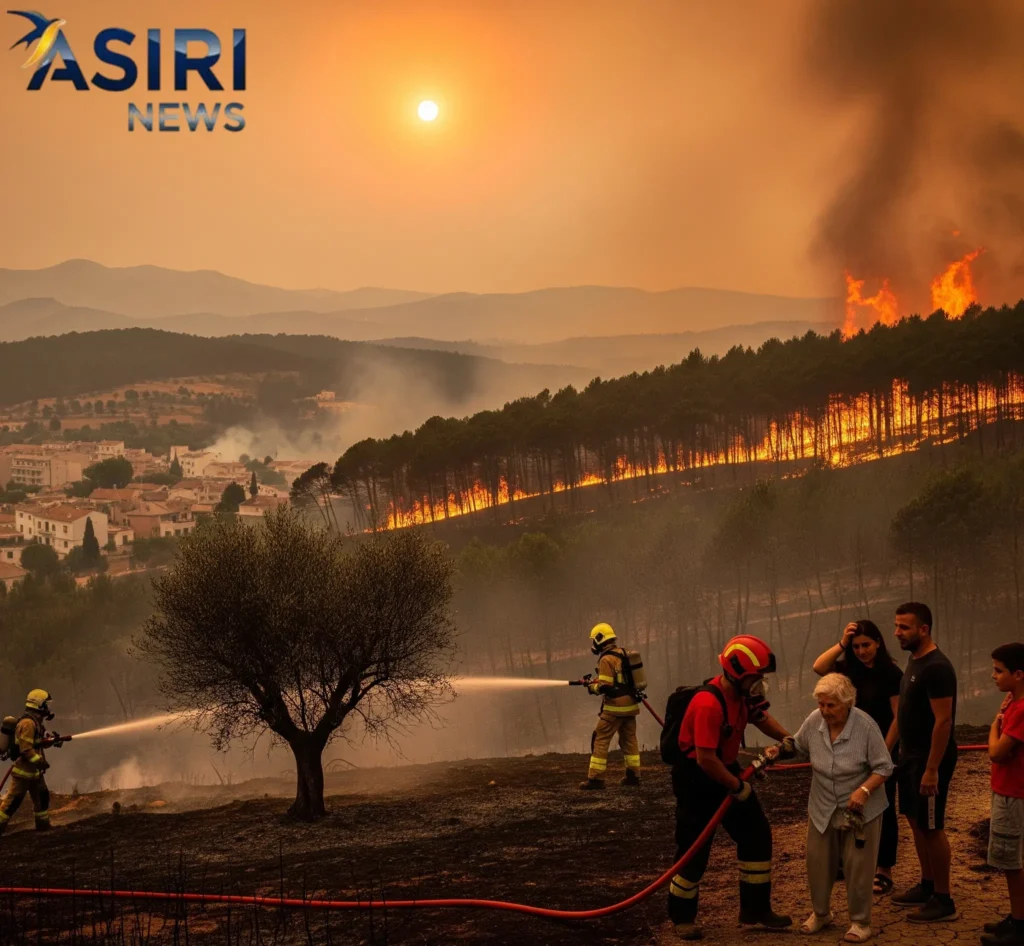Most Intense on Record” Heatwave Fuels Wildfires, Exposing Climate Vulnerability
Spain is reeling from an unprecedented heatwave, officially declared by the country’s national meteorological agency, AEMET, as the most intense on record. The 16-day period, which spanned from August 3–18, saw average temperatures soar to a staggering 4.6°C above previous records, shattering the previous peak set in July 2022. This extreme weather event has had devastating consequences, fueling widespread wildfires and causing significant human and environmental impact.
The heatwave was a primary catalyst for the worst month of wildfires on record in Spain, ravaging parts of the north and west of the country. According to the European Forest Fire Information System, the blazes have consumed an estimated 406,100 hectares of land—an area roughly equivalent to 5.5 times the size of Singapore. The fires have not only caused extensive ecological damage but have also had a direct human cost, claiming four lives and forcing the evacuation of over 30,000 people from their homes. In response, Spain deployed military units to assist with firefighting efforts, with additional aerial support from other European nations.

Beyond the immediate threat of fire, the heatwave has had a severe impact on both public health and the agricultural sector. The Spanish government’s Daily Mortality Monitoring System estimates that this year’s heatwaves have contributed to over 1,100 deaths. The soaring temperatures pose a significant risk to vulnerable populations, including the elderly, children, and those with pre-existing health conditions, putting a severe strain on the national healthcare system.
The agricultural industry, a cornerstone of the Spanish economy, has also been hit hard. The extreme heat and associated drought conditions have threatened food security by causing significant crop yield reductions and livestock losses. Crops such as corn and grapes, vital to Spain’s production of wine and other agricultural goods, are particularly vulnerable to temperatures exceeding 40°C, leading to reduced quality and potential crop failure.
This record-breaking heatwave is a stark illustration of the long-term climate trends affecting Spain. According to AEMET, the frequency of heatwaves has doubled since 2010, and five of the six heatwaves that have exceeded 4°C above the average have occurred since 2019. These trends, combined with projections of decreased precipitation, point to a future where such extreme weather events will become more frequent, intense, and prolonged, underscoring the urgent need for climate adaptation strategies.



